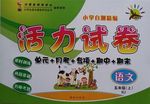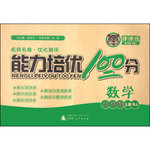题目内容
When I was a kid in Minnesota, watermelons were expensive. One of my father's friends, Bernie, was a rich businessman, who owned a large store in St. Paul.
Every summer, when the first watermelons arrived, Bernie would call. Dad and I would go to Bernie's place. We’d sit on the edge of the dock (码头), feet dangling (摇晃), and got ready for a big meal. Bernie would take his knife, cut our first watermelon, hand us both a big piece and sit down next to us. Then we'd bury our faces in watermelon, eating only the heart—the reddest, juiciest, firmest, sweetest, and most seed-free part — and throw away the rest.
Bernie was my father's ideal of a rich man. I always thought it was because he was such a successful businessman. Years later, I realized that it was not Bernie's wealth itself but his way of dealing with it that my father liked. Bernie knew how to stop working, get together with friends and eat only the heart of the watermelon.
What I learned from Bernie is that being rich is a state of mind. Some of us, no matter how much money we have, will never be free enough to eat only the heart of the watermelon. If you don't take the time to dangle your feet over the dock and enjoy life’s small pleasure, your work is probably hurting your life.
For many years, I forgot that lesson I'd learned as a kid on the loading dock. I was too busy making all the money I could.
Well, I've relearned it. I hope I have time left to enjoy the success of others and to take pleasure in the day. That's the heart of the watermelon. I have learned again to throw the rest away.
小题1:We learn from the second paragraph the writer and his father were feeling_____.
小题2:How did the writer and his father eat the watermelon?
小题3:In the eyes of the writer's father, Bernie ________.
小题4:The underlined part "the heart of the watermelon" in the last paragraph refers to ______.
小题5:It can be learned from the passage that ______.
Every summer, when the first watermelons arrived, Bernie would call. Dad and I would go to Bernie's place. We’d sit on the edge of the dock (码头), feet dangling (摇晃), and got ready for a big meal. Bernie would take his knife, cut our first watermelon, hand us both a big piece and sit down next to us. Then we'd bury our faces in watermelon, eating only the heart—the reddest, juiciest, firmest, sweetest, and most seed-free part — and throw away the rest.
Bernie was my father's ideal of a rich man. I always thought it was because he was such a successful businessman. Years later, I realized that it was not Bernie's wealth itself but his way of dealing with it that my father liked. Bernie knew how to stop working, get together with friends and eat only the heart of the watermelon.
What I learned from Bernie is that being rich is a state of mind. Some of us, no matter how much money we have, will never be free enough to eat only the heart of the watermelon. If you don't take the time to dangle your feet over the dock and enjoy life’s small pleasure, your work is probably hurting your life.
For many years, I forgot that lesson I'd learned as a kid on the loading dock. I was too busy making all the money I could.
Well, I've relearned it. I hope I have time left to enjoy the success of others and to take pleasure in the day. That's the heart of the watermelon. I have learned again to throw the rest away.
小题1:We learn from the second paragraph the writer and his father were feeling_____.
| A.hungry | B.worried | C.relaxed | D.proud |
| A.They ate it in a polite way. |
| B.They only ate its best part. |
| C.They ate every part of it. |
| D.They shared only one piece. |
| A.was just a rich businessman |
| B.worked hard all the time |
| C.lived a rich but healthy life |
| D.knew how to make money |
| A.the writer's hope of enjoying life |
| B.the writer's busy life |
| C.the writer's decision of making money |
| D.the best part of the watermelon |
| A.one has to work hard to reach his goal |
| B.a friend in need is a friend in deed |
| C.watermelon is the healthiest fruit |
| D.one should keep work-life balance |
小题1:C
小题2:B
小题3:C
小题4:A
小题5:D
试题分析:短文大意:我小时候在明尼苏达,西瓜是昂贵的。我父亲的一个朋友,伯尼,是一个富有的商人,他拥有的圣保罗的大商店。我从伯尼那里学到的是富有是一种心态。我希望我有时间来享受别人的成功,享受每一天。这是心的西瓜。我已经学会了扔掉剩下的。
小题1:细节理解题。根据第二段中We’d sit on the edge of the dock (码头), feet dangling (摇晃), and got ready for a big meal.可知该选C。
小题2:细节理解题。根据第二段末Then we'd bury our faces in watermelon, eating only the heart—the reddest, juiciest, firmest, sweetest, and most seed-free part — and throw away the rest.可知该选B。
小题3:细节理解题。根据短文内容可知在作者父亲的眼里,伯尼过着丰富而健康的生活,所以该选C。
小题4:词义猜测题。读短文可知the heart of the watermelon指的是作者对享受生活的希望,所以该选A。
小题5:推理判断题。根据短文内容可知一个人应该保持工作和生活平衡,所以该选D。

练习册系列答案
 活力试卷系列答案
活力试卷系列答案 课课优能力培优100分系列答案
课课优能力培优100分系列答案
相关题目
